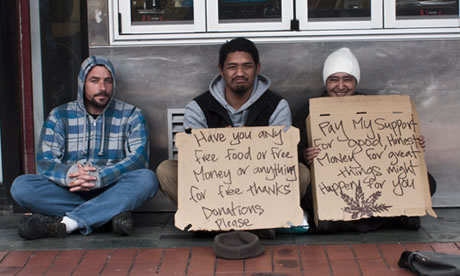Equality Network, a group of social agencies, churches and trade unions, has urged New Zealand’s political parties to reduce inequality by restoring the balance between income and wealth.
Equality Network says it wants a New Zealand in which everyone has the resources they need to provide for their families and whānau.
The network says big imbalances of income and wealth have been “deeply destructive and unfair” and corrosive of New Zealand’s social fabric.
It says New Zealand experienced its biggest increase in income disparity in the decade after the mid-1980s.
The network’s aim is to reduce inequality in New Zealand to levels enjoyed by countries such as Denmark.
There, the richest tenth has an average income five times that of the poorest tenth.
That’s the level New Zealand had in the early-1980s.
Currently in New Zealand that ratio is nine-to-one and the network believes a ratio of five-to-one is achievable.
The network says some direct causes of inequality include the effects on Māori of colonisation, and discrimination, as evidenced by the gender pay gap.
Other causes, like globalisation and robotic manufacturing either cannot or should not be directly opposed because they do bring benefits.
But they say politicians can reverse indirect causes of inequality.
These are tax cuts for the rich, benefit reductions, failure to build sufficient houses and restrictions on workers’ bargaining powers.
The network’s recommendations come under three broad headings: income inequality; wealth inequality and; addressing the long-term causes of inequality.
The network says those don’t cover all the changes needed but that they would be both politically feasible and effective.
The network comprises 37 non-government organisations.
These include Caritas Aotearoa New Zealand, the Catholic Bishops’ agency for justice, peace and development, and the National Council of Christian Social Services, of which Catholic Social Services is a member.
Sources
- Release to media
- Full statement (PDF)
- Image Newswire
